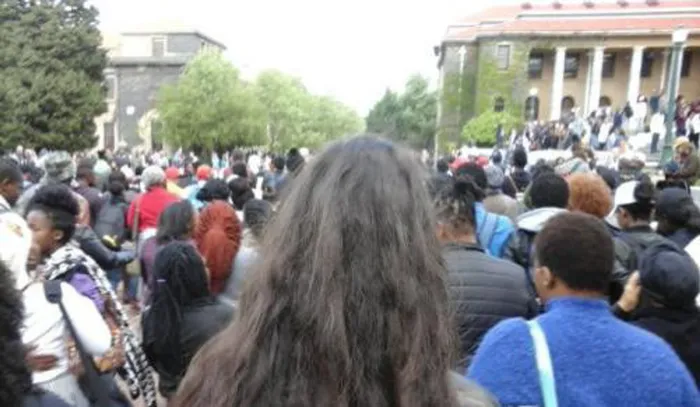Universities resolve to stay open

UWC, Stellenbosch University and UCT are set to remain open today while all CPUT campuses have been suspended amid student protests for free “decolonised” education.
Student activists shut down UCT, UWC and CPUT campuses yesterday and have vowed to continue protesting until their demands are met.
Besides the demand for “free decolonised education” students are also demanding charges and interdicts against students be lifted.
At CPUT all classes were suspended immediately after a number of disruptions occurred at its Mowbray, Cape Town, Bellville and Wellington campuses.
CPUT spokesperson Lauren Kansley said: “The group of around 200 people reiterated their list of demands and Dr Nevhutalu in turn communicated the institution's official standpoint.” She said the resuming of classes will be decided later today and communicated to staff and students, but all staff are expected to report for duty.
At UWC, a group of about 200 protesters met at the student centre to discuss their plan of action in support of the national shutdown. UWC spokesperson Luthando Tyhalibongo said the group later converged in front of the administration building and informally indicated they were awaiting a response to the 40 demands e-mailed from an anonymous Gmail account under the banner of #FeesWillFall.
At UCT, protesters blocked roads and entries and exits to the university, storming lecture rooms to disrupt classes and setting off alarms amid a strong presence of private security and SAPS.
Vice-chancellor Max Price said the university is in a situation where the academic year is in jeopardy.
“The university has to remain open… We are open to ongoing engagement with any students or staff regarding the issues raised by the protests, but we believe that such engagement can run in parallel with the institution being open and classes continuing.” Price said he wishes no student to be ignorant about what constitutes unlawful protest behaviour.
“Disruption of classes, blocking of entrances or exits, interfering with traffic flow, putting up barricades that prevent people from conducting normal business or attending classes, and any form of intimidation – whether physical or verbal – is unlawful.
“The attention of all students is drawn to the following specific provisions in the code of conduct. The university will, via its Student Disciplinary Tribunal, prosecute breaches of the code.”